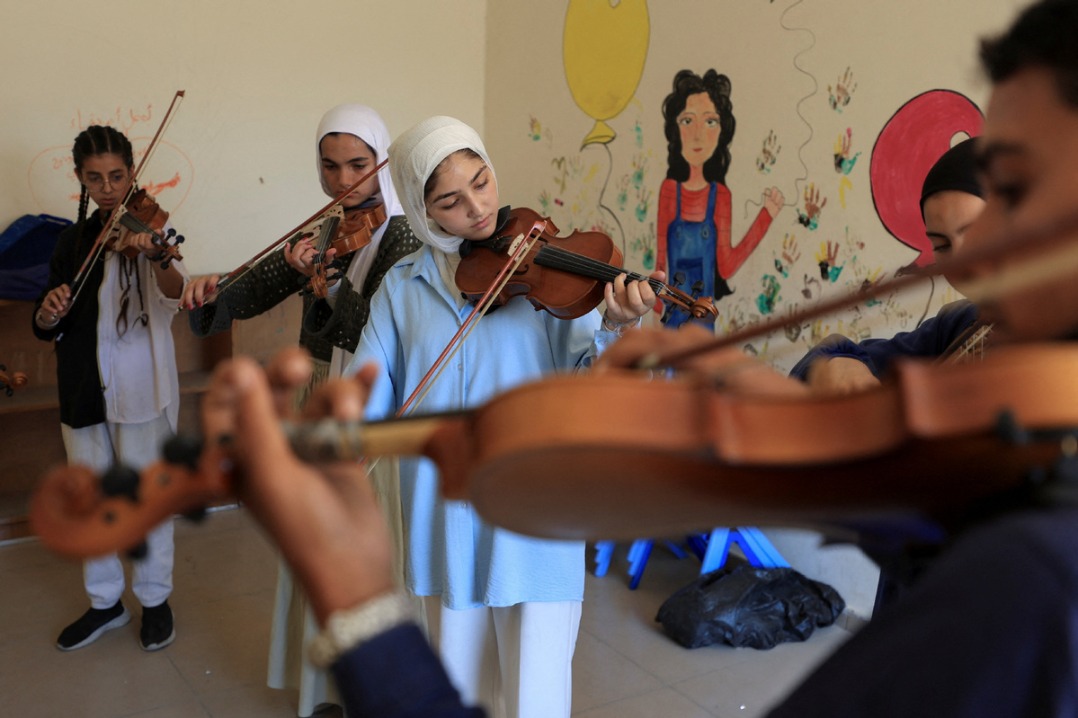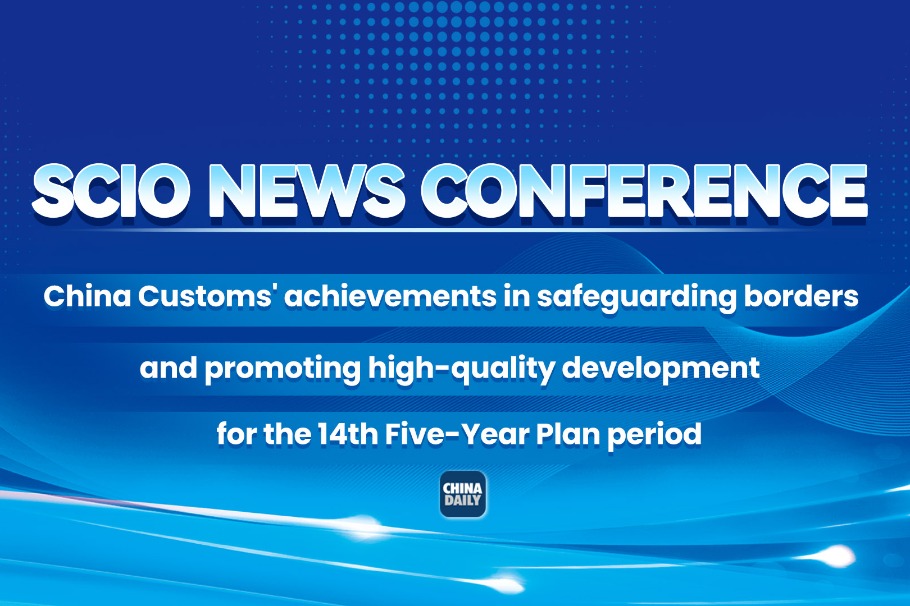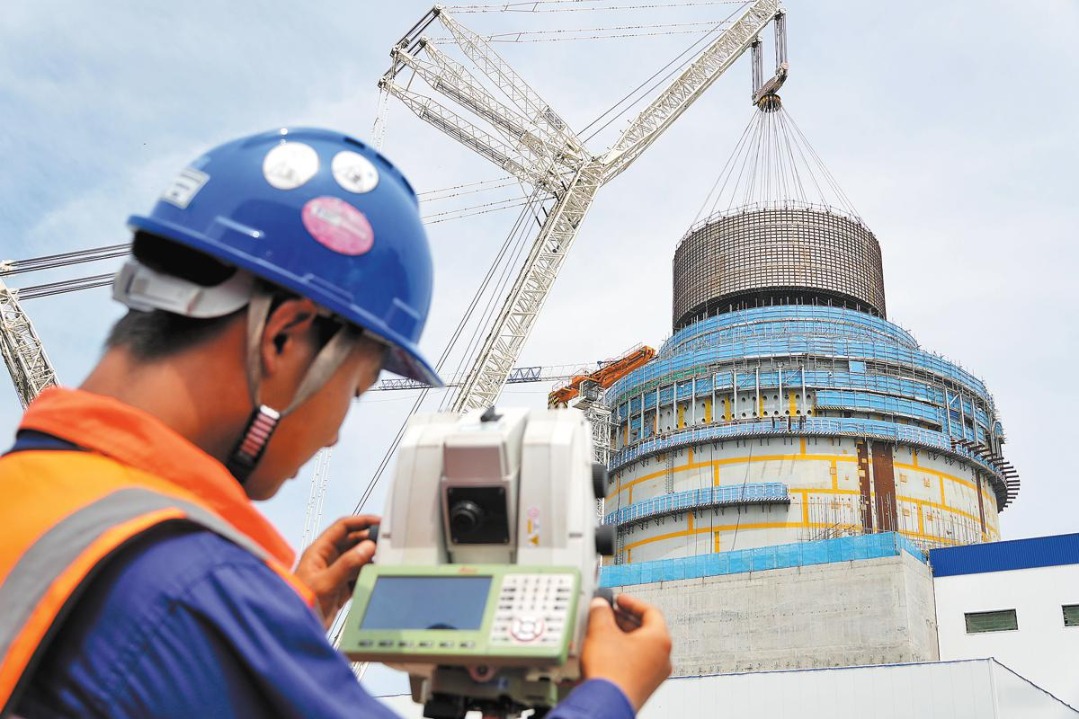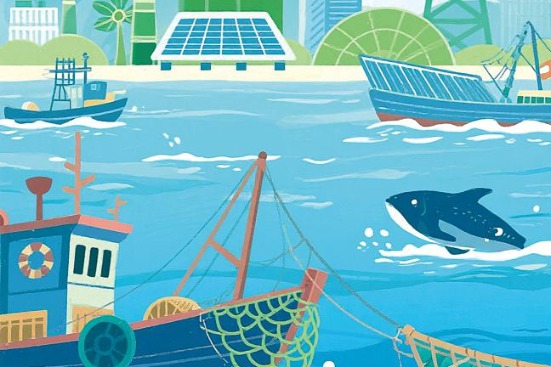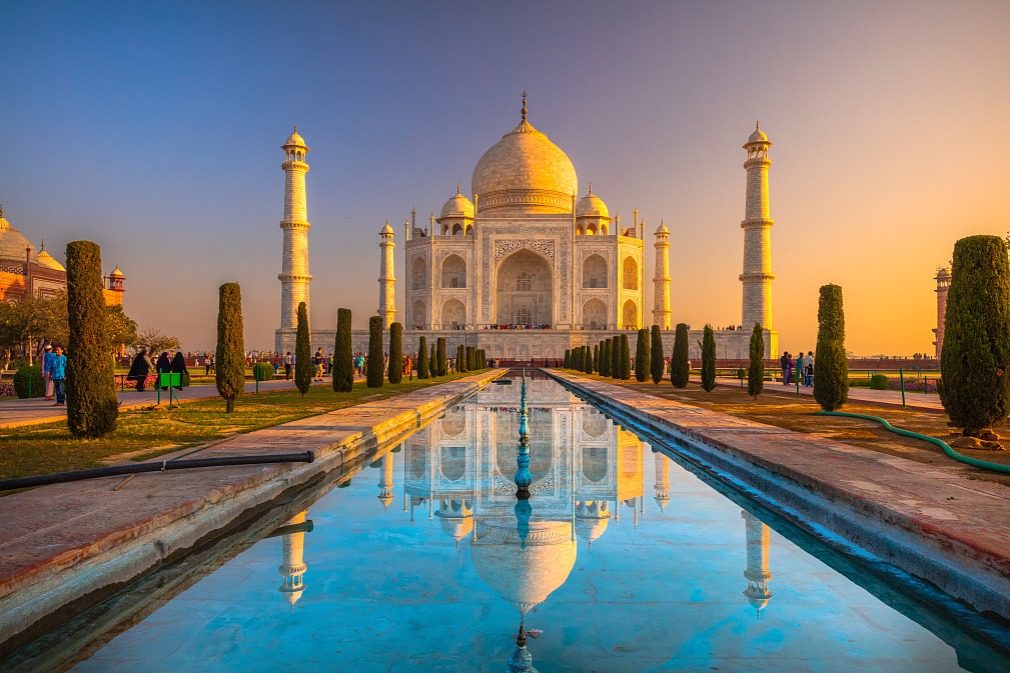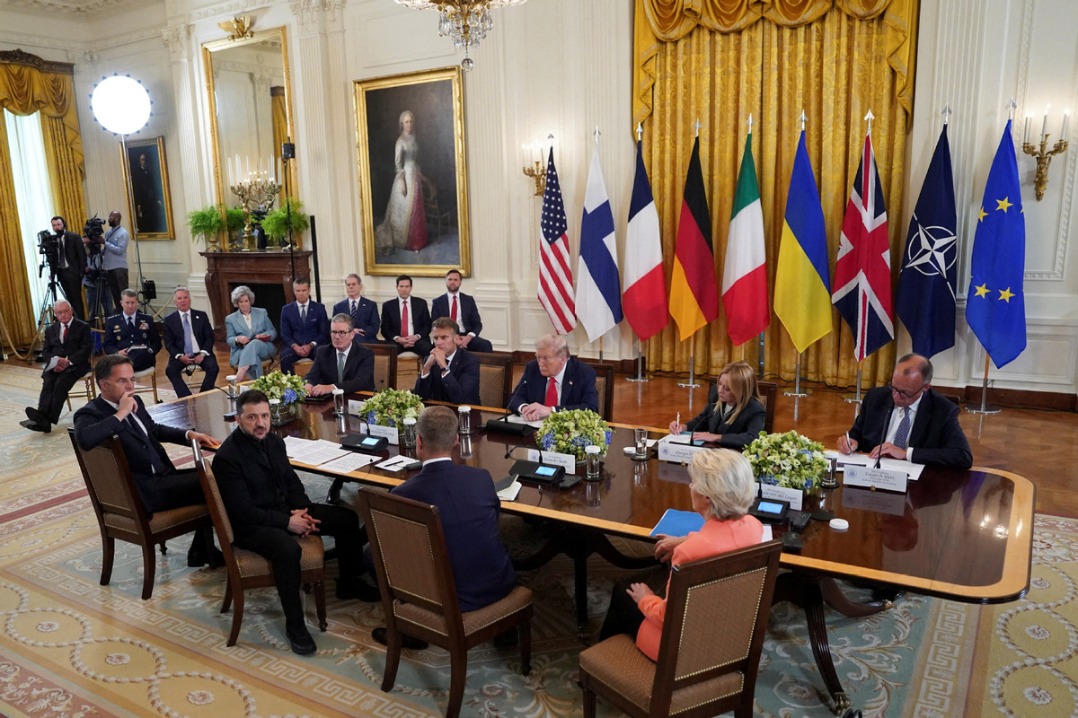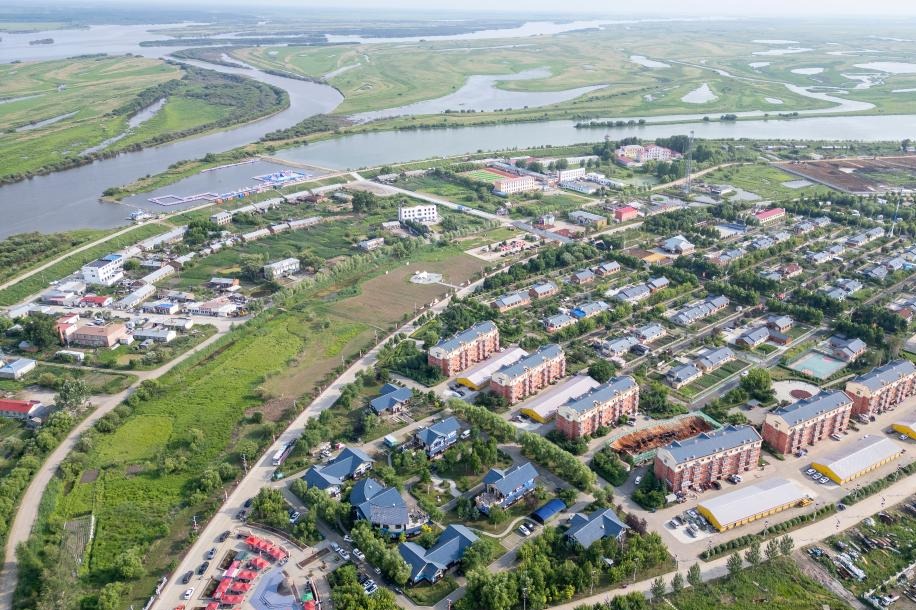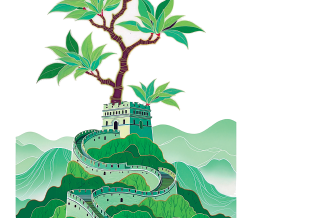Support for multilateralism defines China's UN contribution

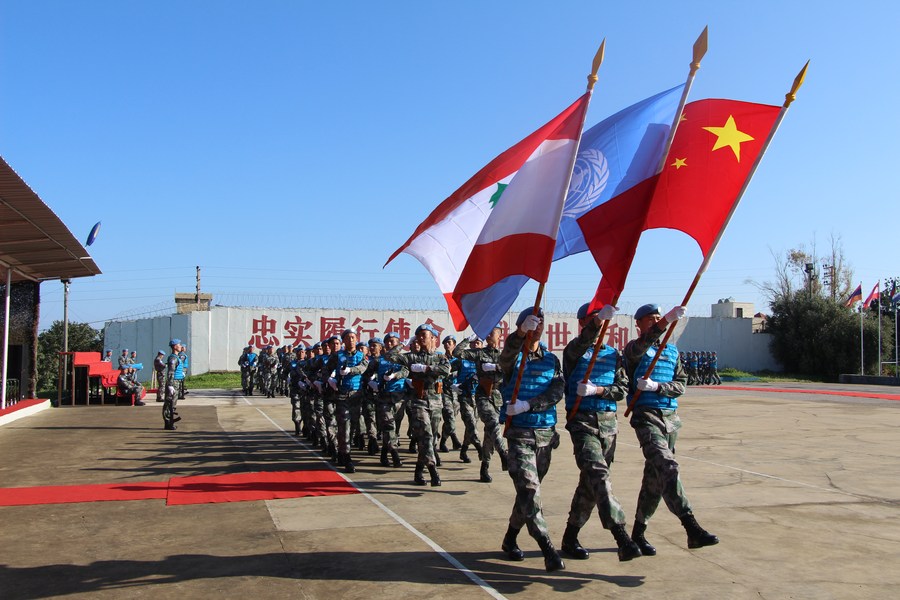
On the evening of July 10, 2016, a mortar shell hit an armored vehicle amid a fierce exchange of fire between government and opposition forces in Juba, the capital city of South Sudan. Inside the vehicle were two Chinese peacekeepers on duty to protect some 9,000 civilians in downtown Juba and surrounding villages.
Li Lei, a young soldier who had just celebrated his 22nd birthday, was killed alongside Sergeant Yang Shupeng, father of a 5-year-old 5,000 miles away from home. The two were awarded the United Nations' Dag Hammarskj?ld medal for their sacrifice.
"United Nations peacekeeping is a concrete example of multilateralism at work. ... [It] has enabled the countries of the world to meet common threats to peace and security and share the burden under the UN flag," wrote Secretary-General António Guterres.
For more than three decades, China has shown great commitment to this endeavor. The second-largest contributor to the UN regular budget and peacekeeping budget, it has dispatched over 50,000 peacekeepers to nearly 30 operations, more than any other permanent member of the Security Council. Throughout the years, 24 Chinese peacekeepers have made the ultimate sacrifice.
China's commitment to peacekeeping is rooted in its faith in multilateralism. Advocating multilateralism has been the top item on China's agenda during its current (May 2021) and previous (November 2018) rotating presidency of the Security Council.
The clear message from China is to uphold "the UN-centered international system and the international order underpinned by international law", not "the rules-based international order advocated by a small number of countries". That is the very theme of the first high-level Security Council meeting China chaired this month.
What exactly is multilateralism about? State Councilor and Foreign Minister Wang Yi's remarks at this meeting hold vital clues.
The first component is win-win cooperation, as opposed to zero-sum games. Complex global issues and common challenges call for collective response. In fighting COVID-19, no country should expect others to lose this battle, for no one truly wins until everyone wins.
Second, equity and justice, not bullying or hegemony. The key is promoting democracy and the rule of law in international relations. Responsibilities of global governance are to be shared, and rules are to be written by and applicable to all, not just a few.
Third, action rather than rhetoric. Multilateralism means taking action and finding solutions that work for the long run and the greater good. Major countries, in particular, must lead by example and provide concrete global public goods.
Fourth, diversity instead of seeking one's own supremacy. The strength of multilateralism lies in the fact that while peace, development, equity, justice, democracy and freedom are values shared by humanity, each country is unique in its history, culture and path of development. The world thrives on such diversity, and the last thing it needs is to be split up along ideological lines.
Much like its record at the Security Council, China's contribution to UN causes over the years can be characterized by support for multilateralism. Member of nearly all major intergovernmental organizations and signatory to more than 500 international conventions, China has faithfully fulfilled its obligations and honored its commitments.
China has remained ever engaged as humanity fights on against COVID-19. It has announced generous donations to the World Health Organization and the UN-initiated Global Humanitarian Response Plan as well as concrete steps to support the COVID-19 Vaccines Global Access (COVAX). It has provided vaccine assistance to more than 80 developing countries and exports to 43. It was gratifying to hear about a 300,000-dose donation to peacekeepers and 100,000 to Palestine earlier this year, knowing that the ones working for justice are not forgotten.
When it comes to the number one goal laid out in the UN's 2030 Agenda for Sustainable Development, namely ending poverty, it is no overstatement that China has led by example. The eradication of extreme poverty in a country where one-fifth of humanity resides has contributed over 70 percent to global poverty reduction.
In addition, China has done what it can to assist other members of the global South in fighting poverty and advancing development. Under the United Nations Peace and Development Trust Fund, the South-South Cooperation Assistance Fund and the China-FAO South-South Cooperation Trust Fund, China has pledged over $4 billion to bolster world development.
China has been a prominent part of global action on climate change and ecological conservation. "Indeed, China played a key role in facilitating the Paris Agreement," wrote Laurent Fabius, former French foreign minister and president of COP21. China's goal of peaking carbon dioxide emissions before 2030 and achieving carbon neutrality before 2060 marks a major step in implementing the agreement.
The ambitious commitment to a 30-year transition to net zero speaks volumes about China's high sense of responsibility. As China hosts COP15 to the Convention on Biological Diversity this October, it is expected to play a more active role in the post-2020 global biodiversity framework.
In recent years, multilateralism has won more hearts as the world goes through complexities rarely seen before. Multilateralism needs to be realized through the UN, through international law and through cooperation among all parties. China, in both words and deeds, has been its champion.
Last month, China launched the first in a series of commemorative activities to mark the 50th anniversary of the restoration of the People's Republic of China's lawful seat at the UN. It initiated the Group of Friends on the Safety and Security of UN Peacekeepers in New York and held an online meeting with the UN to exchange peacekeeping experience. This month, as rotating president of the Security Council, China chaired an open debate dedicated to the safety and security of peacekeepers.
While we grieve the loss of Li Lei and Yang Shupeng, it is encouraging to see their brothers and sisters across the country and beyond picking up the baton. The International Day of UN Peacekeepers this Saturday reminds us once again that for the peace and security of humanity, peacekeeping is a most worthy cause.
Yi Fan is a current affairs commentator based in Beijing.

















